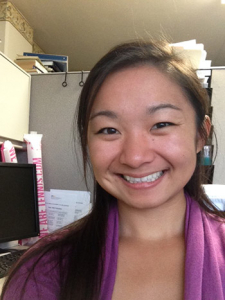 I’ve heard a common question posed to potential medical school students is “why do you want to be a doctor?” It’s a fair question, but it leads to some cookie cutter answers. I’ve always known I enjoy helping people and studying science, but before I directed my life towards a career in medicine I wanted to find an honest answer to why I want to be a doctor. Luckily, I met a woman who gave me the answer.
I’ve heard a common question posed to potential medical school students is “why do you want to be a doctor?” It’s a fair question, but it leads to some cookie cutter answers. I’ve always known I enjoy helping people and studying science, but before I directed my life towards a career in medicine I wanted to find an honest answer to why I want to be a doctor. Luckily, I met a woman who gave me the answer.
Last summer, I took on an internship at the Washington Hospital Center’s Center for Ethics in Washington, D.C., I mostly saw patients in the intensive care units (ICUs) and Burn Center who were otherwise incapacitated. A person from the Ethics Center usually makes a recommendation concerning the care of these patients based on input from the physicians and nurses involved, the social worker, and the legal decision maker (usually a family member, partner, or guardian) for the patient.
During the last week of my internship, Ethics was consulted on a case in the surgical intensive care unit (SICU). The patient was a very weak, frail elderly woman with inexplicable lung and respiratory problems, heart problems, and a history of surgeries; however, some of the wires from a previous heart surgery needed to be repaired. The resident intensivist (the physician in the ICU) asked her “yes or no” questions through a translator and patiently listened to her replies. When they were done, the patient quietly reached out to the intensivist and silently held his hand for a moment before letting go.
It happened so quickly, but I will never forget it. In that moment with the patient holding the intensivist’s hand, showing honest gratitude, and expressing so many words despite the communication barriers, I wanted to be the doctor that helped her.
My research mentor told me and the others in his lab he was inspired to go in to research when he found someone who he looked up to and wanted to be. I want to enable people to get the best possible care, especially at the end of life, and to hold a patient’s hand knowing I am a part of the team responsible for giving this person some happiness. That gentle, elderly woman reached out through her exhaustion and confusion and inspired me without saying a word.

